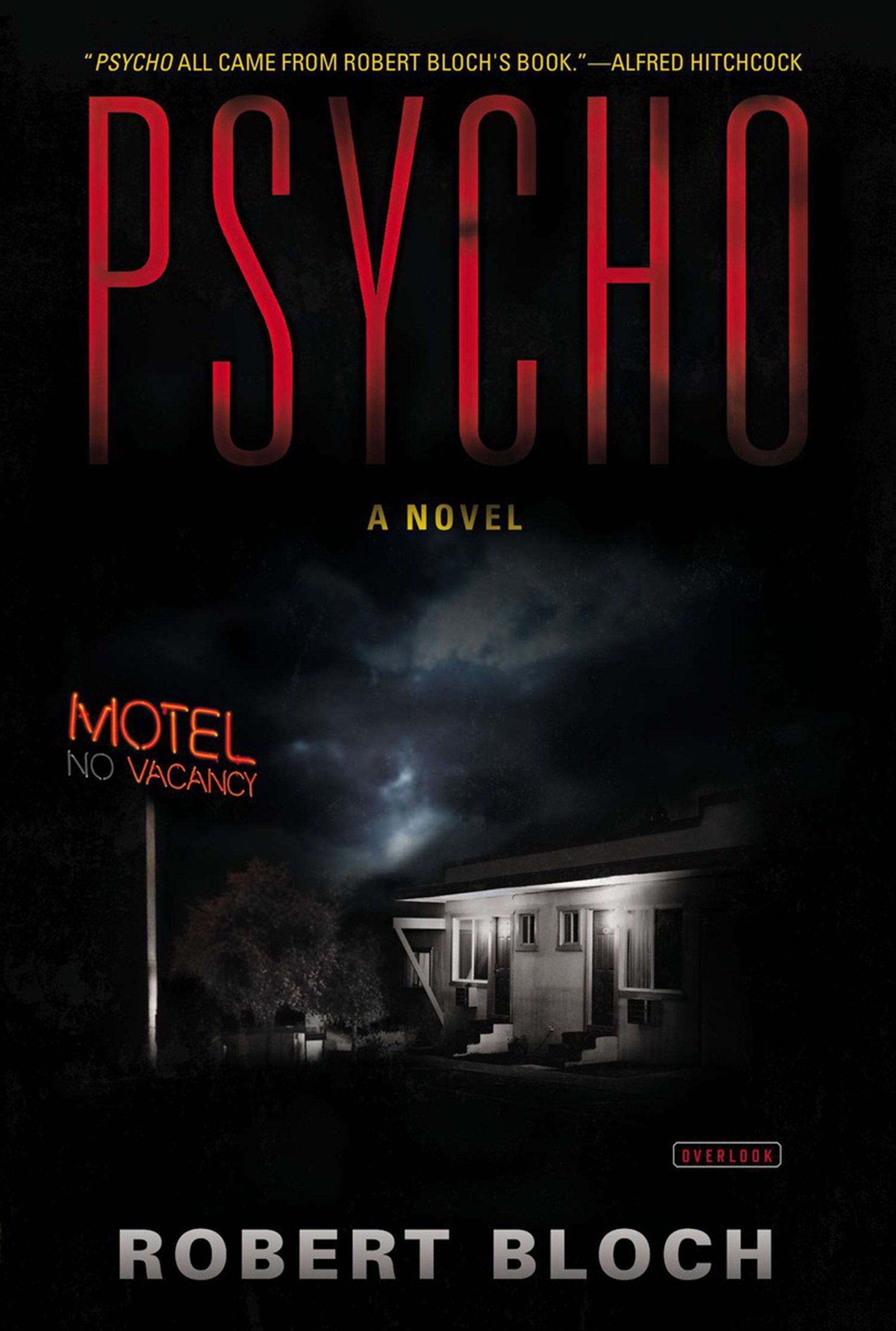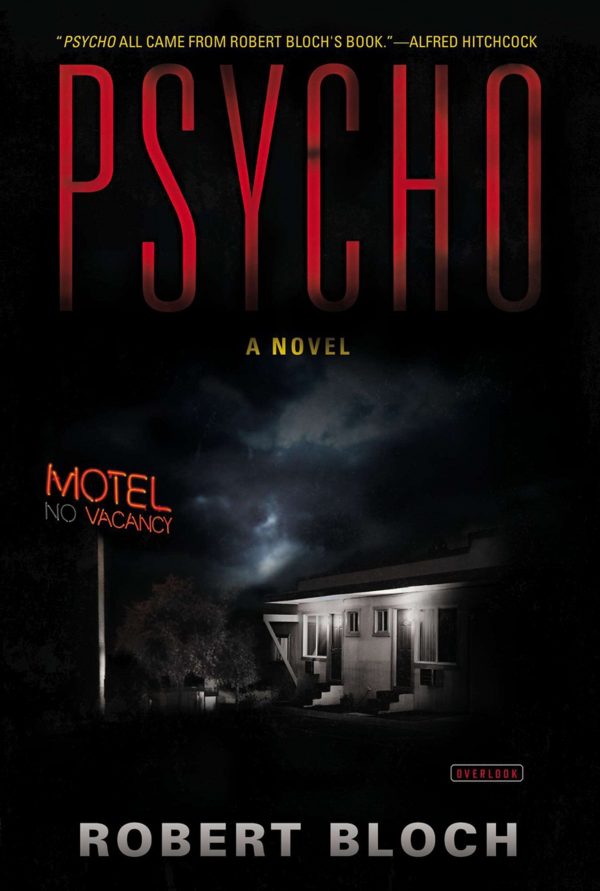From the past articles in which we have discussed Robert Bloch and his creative works within the horror genre, we decided to talk a little bit about his most famous novels, especially Psycho, the film that almost overnight made Bloch a writing sensation.
The Scarf (1947)

This novel was originally published twelve years before Bloch’s most famous work, Psycho (1960) and while it was originally published without much publicity and was largely ignored for years, it along with Bloch’s other older works started to receive more notice after Hitchcock adapted Psycho to the big screen. Once Bloch’s work received such critical acclaim, his other less popular works began to gain some popularity as well. These other works tend to still be less popular and while they were all well-written, most were unfortunately as forgettable as they come. The Scarf, despite being one of Bloch’s best novels is somehow still one of his forgotten novels.
When we look at The Scarf we see a story about Daniel Morley, a man who admits to having a fetish for a certain scar he wears all the time. According to our strange narrator, Morley received this scarf as a gift from his high school English teacher; in a strange turn of events, this teacher attempted to rape Morley and whom Morley killed in alleged self-defense.
We eventually see Morley as somewhat of a wandering vagrant, one who commits small crimes to get by—and then also there’s the women he murders with.. the scarf.

Psycho (1959)
For those who have been, somehow, untouched by Bloch’s infamous novel Psycho (1959) this synopsis might be somewhat of a spoiler—but that doesn’t mean you can get away with not reading the book, watching the movie, or checking out the television series inspired by the original novel!
Within the story proposed by Bloch in this psychological thriller, we meet Norman Bates, a middle-aged bachelor who is mentally dominated by his mother—a puritanical, mean-spirited woman who prevents Norman from having any kind of normal life outside of taking care of her and the motel they run together in the small town of Fairville. Unfortunately, since the state relocated the highway, Norman and his mother have been struggling to maintain their business which at one point had been a fairly busy highway adjacent place for people to stop for the night.
Enter Mary Crane, an impulsive woman who, after stealing $40,000 from one of her real estate clients, is on the run from the law. Mary arrives just when Norman and his mother are in a heated argument and as the situation progresses, Mary is under the impression that Norman’s mother would benefit from a mental hospital. Norman denies that there is anything wrong with her, suggesting that, “we all go a little mad sometimes.” After finishing her dinner with Norman, Mary returns to her room having decided to return the money she stole and face the consequences so she doesn’t end up like Norman and his mother, but in an unforeseen change in circumstance, while Mary is taking a shower, a figure that looks like an old woman ambushes Mary and beheads her for her offenses.
Norman, who had passed out drunk after dinner finds Mary’s bloody corpse and is instantly convinced his mother murdered their customer—briefly considering letting his mother go to prison, he instead decides to get rid of the body and dispose of Mary’s belongings in a swamp before returning to life as usual. Mary’s fiance catches wind of her disappearance through Mary’s sister, who with the help of a private investigator hired by Mary’s employer, begin the search for her together. Arbogast, the private investigator, is eventually led to the Bates Motel where he questions Norman about Mary—Norman of course lies, telling Arbogast that Mary had only stayed for one night and left. Wanting to cover his bases, Arbogast asks to speak with Norman’s mother, but Norman refuses and by doing so, rouses Arbogast’s suspicion. The mystery continues and what awaits those searching for Mary Crane turns into a psychological thriller that goes beyond the standard criminal mind—who could have known that Norman Bates was such a pscyho?
Psycho (1960) Adaptation into Film
Immediately after publishing, Bloch was made an offer for the film rights to the book that put him on the map, it wasn’t until well after the rights were purchased that Bloch found out the person who purchased them was actually Alfred Hitchcock. We discuss more of the surrounding details in our article Robert Bloch: The Man Who Brought Us Psycho.
Psycho (1998) Remake
Bates Motel (2013-2017)
A disturbing and driving force of psychological horror, Carlton Cuse and A&E provided a reimagined version of Bloch’s original creation, having a more in-depth backstory and an interesting narrative and twist on dissociative personality disorder and how the extremes of such could result in such a violent psychological break even from someone who was at first depicted as being so docile and sweet.
Works Cited
Bloch, Robert. Psycho. Blackstone Audio, Inc., 1959.
Bloch, Robert. The Scarf. Dial Press, 1947.
Cuse, Carlton. Bates Motel, A&E, 2013.
Sergio. “THE SCARF (1947 / 1966) by Robert Bloch.” Tipping My Fedora, 13 May 2012, bloodymurder.wordpress.com/2012/04/20/the-scarf-1947-by-robert-bloch/.
Van Sant, Gus, director. Psycho, Universal Pictures, 1998.

Georgia-based author and artist, Mary has been a horror aficionado since the mid-2000s. Originally a hobby artist and writer, she found her niche in the horror industry in late 2019 and hasn’t looked back since. Mary’s evolution into a horror expert allowed her to express herself truly for the first time in her life. Now, she prides herself on indulging in the stuff of nightmares.
Mary also moonlights as a content creator across multiple social media platforms—breaking down horror tropes on YouTube, as well as playing horror games and broadcasting live digital art sessions on Twitch.


